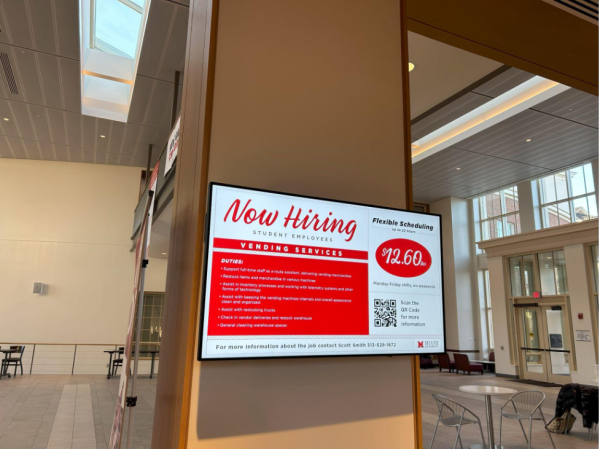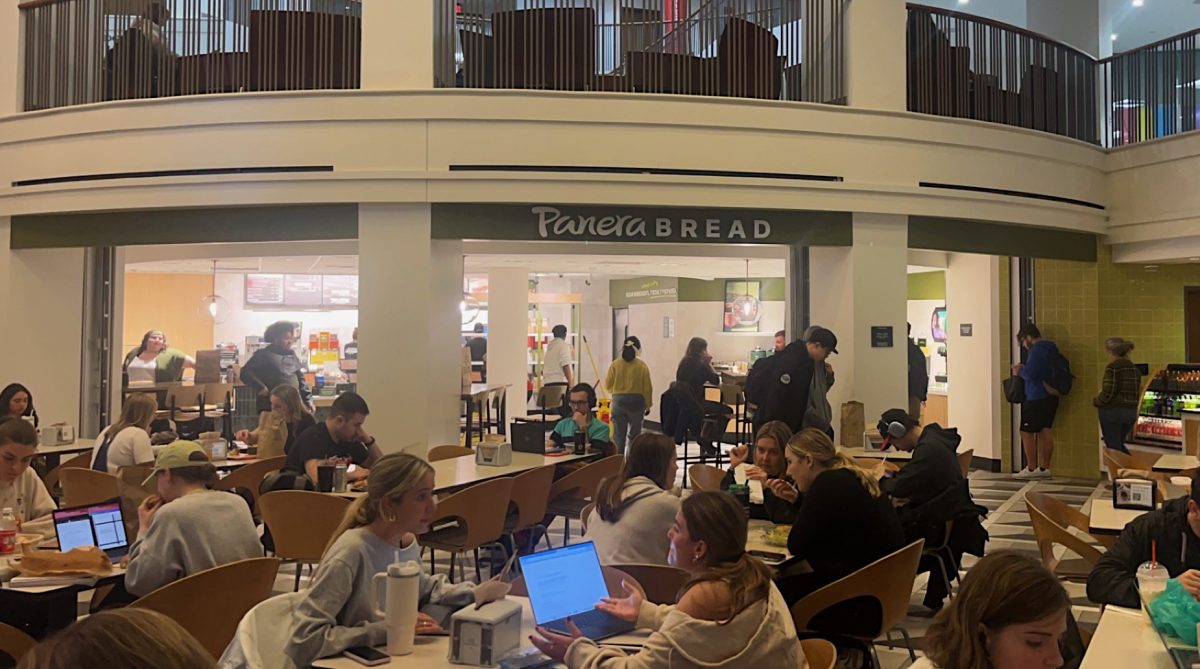Miami University is switching back to Chartwells Higher Education to provide food service after only fulfilling two years of a 10-year contract with Aramark.
Chartwells, headquartered in Charlotte, North Carolina, was previously Miami’s food service provider prior to 2021.
Workers at some campus eateries employed by Aramark, based out of Philadelphia, Pennsylvania, will have to reapply for Chartwells, according to a news release from the university. However, current employees of Miami will not be affected.
“We expect that almost every employee, who is in good standing, will have the opportunity to continue to work at Miami,” said David Creamer, senior vice president for Finance and Business Services at Miami. “We are not planning to make staff reductions.”
Creamer said the university has started meeting with current employees of Aramark to answer questions and start the hiring process after the switching to Chartwells.
“The things students have told us that they like such as Grubhub, Bell Tower, Panera and Starbucks will be unchanged,” Creamer said. “Our focus the next two years will be on a smooth transition, improving allergen stations, doing a better job of changing up the menus throughout the semester in the dining halls, finding a strong national brand to add to Armstrong, and striking the right mix of on-the-go dining options with traditional sit-down dining.”
According to the press release from Miami, Chartwells will begin operating on May 20. Miami expects that there will be no financial impact on the university or students.
Kelsey Hawkins, an Aramark employee who was previously responsible for hiring people in Oxford, said the company had no issues remaining fully staffed over the last two years.
Officials and employers in town said that hiring service employees has not been an issue this semester.

Mark Johnson, general manager of Skipper’s Pub, said he primarily hires Miami students. He said there is typically an influx of applications at the beginning of each semester, and the bar and restaurant historically receives many more applications than open positions.
Seth Cropenbaker, economic development specialist for Oxford, said that 30% of all jobs in Oxford are in the service industry.
“We can see how much of our economy relies on the presence of Miami and the undergrad students,” he said. “The service economy runs when there are people in town. When students are in session, there are plenty of customers and a high labor pool. When students are gone, things dry up and it creates real challenges.”









